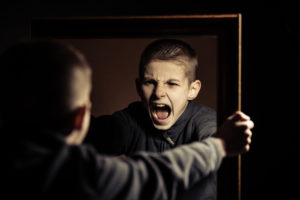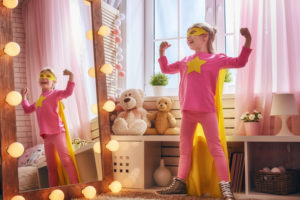Why we need to teach children (and adults) self-reflection
So often, I meet children (and adults) who are caught up in a challenging thought process where they are angry with particular features of friends, teachers, parents or peers.
One of the activities that we often take part in, is to consider:
“How much of that characteristic exists in you”
All of us have mirror neurons in our brain. These wonderful brain cells allow us to look at another person and seek out what is similar in them, whether it is a mannerism, action or quirk. They seek out the familiar – our mirrors. Mirror neurons allow us to access an internal experience of what someone else is doing. Mirror neurons look for imitation and allow us to mimic what others do, they are therefore considered to play a role in our ability to empathise with others. Mirror neurons are sociable cells. Ever wondered why, when you watch someone in pain, you feel their pain? Or when you meet someone who has quirks like you, you immediately feel more connected to them? Or, when you watch a sport like tennis, you find yourself imitating swinging the racket in conjunction with what you see? Or in a film, you duck when the character ducks? Or, when you spend time with someone you like, you find yourself mimicking them?
Our mirror neurons fire when we perform an action – and also when we watch someone else perform it. They allow us to scynchronise our internal state of behaviour to our environment. They are the perfect system to allow us to relate to others and adapt to the world around us BUT they also mean we are susceptible to other people’s moods and state of mind. However, this also means, that if we are surrounded by a number of negative emotions, we can find ourselves feeling more angry / bitter or frustrated. Our mirror neurons translate others anger – and our own anger – and have the ability to pass it back and forth. It brings a new level of understanding to why, we so often discuss that you become the equivalent of the five people you spend the most time with…..

Which brings me back to my starting line…..
“When someone does something that you dislike – How much of that characteristic exists in you”
If we are around someone who has a trait / characteristic or quirk that really irritates you – consider – your mirror neurons are firing – so, what is it in their behaviour that holds something that you:
- Don’t like about yourself?
- You find uncomfortable in yourself?
- That you have a pre-conceived idea about?
- That contains a bias?
Remembering, that this may be why you might find someone’s positive qualities irritating?
For instance, a friend who might put themselves out there may be irritating to you, because you desire to do those things but lack confidence to execute them?
You may know someone who does all the things you wish that you could, and being around them makes you feel inferior.
Fundamentally, the things we dislike in others are often (but not always – there are situations such as a hatred of those who hurt animals or psychopaths which are exceptions) the things we find uncomfortable in ourselves. The imperfections that we find distressing in others – are often those which we dislike in us.

Moving forward
So, how does this translate to working with children, teenagers and adults?
Encouraging the reflection, of what is it in that person that:
- Makes me uncomfortable?
- Makes me jealous?
- Makes me dislike something in myself?
- Is an insecurity that I carry?
- Is a flaw that I try to hide from the world?
- Is something that I hate about me?
We can often find, that the unrealistic standards that we hold for others, are also unrealistic standards that we hold for our selves. When we judge others – we judge ourselves. When we move out of a place of annoyance – and into a space of understanding, it allows us to heal the parts of us that need help.
Judgement, stereotypes and bias come from a place of fear and discomfort – using these moments to consider how we can grow as a person allows us to be more accepting and release those difficult emotions. Taking time to self-reflect and consider how we need to embrace or develop our confidence around our flaws, or areas that we would like to grow or develop in ourselves to feel more comfortable allows us to improve our well-being and social connections.
© Dandelion Training and Development – All Rights Reserved
Looking for more?
Don’t forget that you can register and subscribe to our newsletter to receive weekly articles and resources.

Further help
For more articles about mental health visit – HERE
To learn more about child and adolescent mental health visit – HERE
For resources to support child and adolescent mental health visit – HERE
